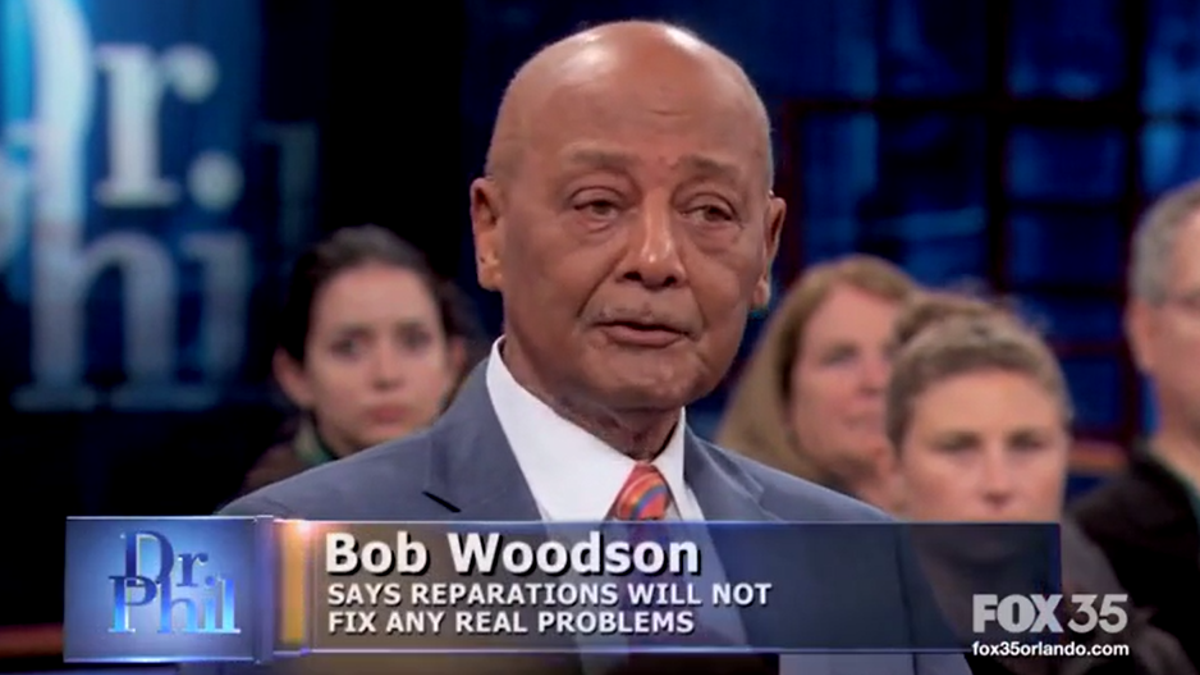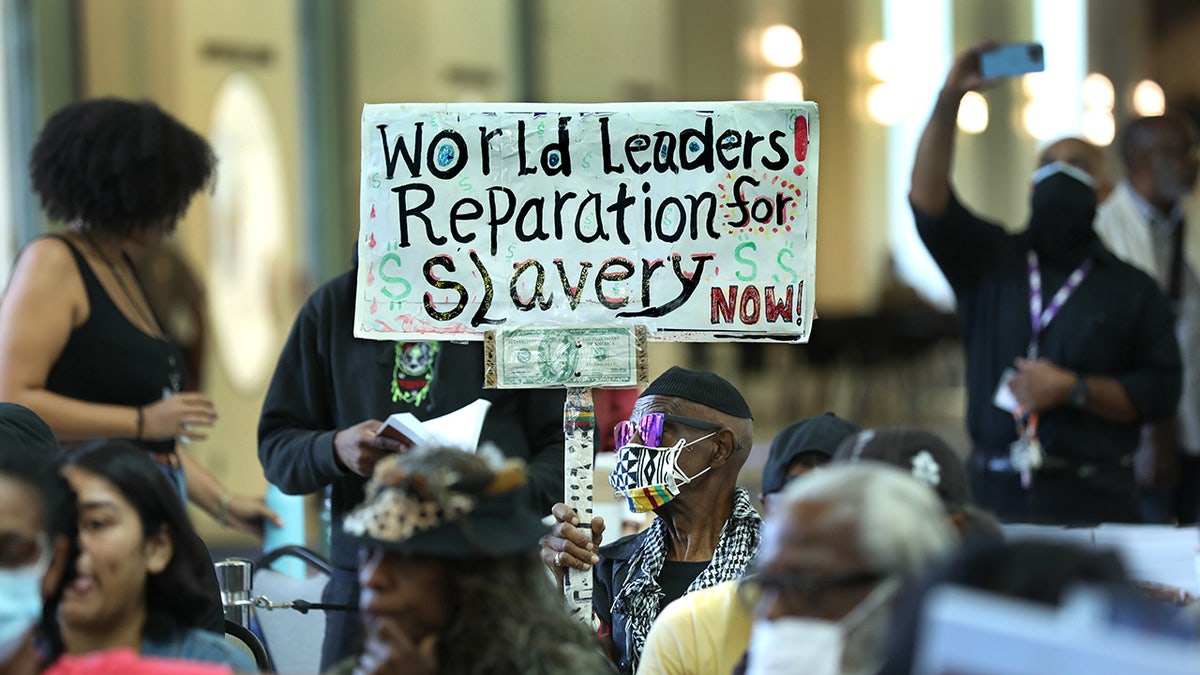Civil rights activist Bob Woodson blasts concept of reparations
A recent episode of Dr. Phil hosted a debate over the morality and practicality of reparations being paid to those whose ancestors were exploited during the American slave trade.
Veteran civil rights activist Bob Woodson condemned the idea of reparations for past slavery on an episode of "Dr, Phil," suggesting that an anti-White mindset behind it is toxic for the Black community.
Dr. Phil hosted an episode on Tuesday where guests debated the morality and practicality of giving reparations to the Black descendants of slavery in the United States. Woodson, the author of "Red, White, and Black: Rescuing American History from Revisionists and Race Hustlers" was one of his guests, and he slammed the very concept of reparations from a variety of angles.
"When you go into slavery, it’s much more complex than all White people were the oppressors, and Black people were the victims," he said. "If you dissect it, you will find there were about 3,700 free Blacks who owned 12,000 slaves — Black slaves. The question is, do the descendants of those free Blacks who owned Black slaves, do they pay?"
REPARATIONS FOR BLACK CALIFORNIANS COULD COST $800B, ECONOMISTS WARN
Woodson, 86, claimed that the modern Black community in America is unrecognizable compared to the more socially conservative one of his youth.

Civil rights activist and author Bob Woodson criticizes the idea of reparations on an episode of Dr. Phil.
"Blacks really benefited more the first 100 years after slavery than we have in the last 50 years," he said. "I was born in 1937 during the Depression. Everyone in my small, low-income Black community, 98% of the households, had a man and a woman raising children. Elderly people could walk safely in that community without fear of being assaulted by their grandchildren. Never heard of gunfire during that time. Never heard of a child being shot to death in the crib, but there are 50 children today who have been shot and killed in our cities."
Woodson pivoted to suggest that the Black community needs to shift its mindset away from blaming White Americans for its problems.
"If you’re talking about remedies, we’ve got to look beyond saying that every solution has to have a winner and a loser - that Blacks can only benefit if Whites lose. We have to be defined [as] more than just victims of oppression," he argued. "When Whites were at their worst, Blacks were at their best. When we were denied access to hotels, we built our own."
"We have to communicate to our people the history of how they achieved in the face of oppression," Woodson added. "But if we continue to sit back and say all of the challenges that we face in out-of-wedlock births, the violence, that somehow the control of that is in the hands of White America, and therefore, until White people change, there’s nothing that we can do – this sets up a terrible situation for this nation."

Anti-racist educator Ashani Mfuko defends the idea of reparations on an episode of Dr. Phil. (CBS)
REPARATIONS FOR BLACK CALIFORNIANS COULD COST $800B, ECONOMISTS WARN
Woodson went on to suggest the crisis i America is not racial but "the moral and spiritual freefall that is consuming our children,"ranging from "homicide" among "Black families" to "prescription drug" addiction in Appalachia.
His proposed solution was to "come together and look beyond race and realize America is drowning because it’s in a moral and spiritual freefall," and to "be defined by what we want to become in the future" rather than remind them of past problems.
Educator Ashani Mfuko suggested the best solution for the Black community is "not an ‘either-or,’" choice between reparations or self-improvement and claimed, "We cannot ignore the reality of systemic racism and how it’s affected the Black community." She added that this racism is "finding us. It finds us wherever we go."

Los Angeles long-time resident, Walter Foster, age 80, holds up a sign as the Reparations Task Force meets to hear public input on reparations at the California Science Center in Los Angeles on Sept. 22, 2022. (Carolyn Cole / Los Angeles Times via Getty Images)
CLICK HERE TO GET THE FOX NEWS APP
Woodson replied by recounting a scandal where Black prison guards had been caught raping female prisoners.
"Every one of the victims was a Black woman. Every one of the villains was a Black guard or a Black officer," he recounted. "It did not generate any debate or discussion because it did not fit the racial narrative." Woodson then criticized the mindset of many racial activists in the Black community.
"In other words, the only time that we can become upset is when evil wears a White face," he said.
"I disagree," Mfuko replied.





















